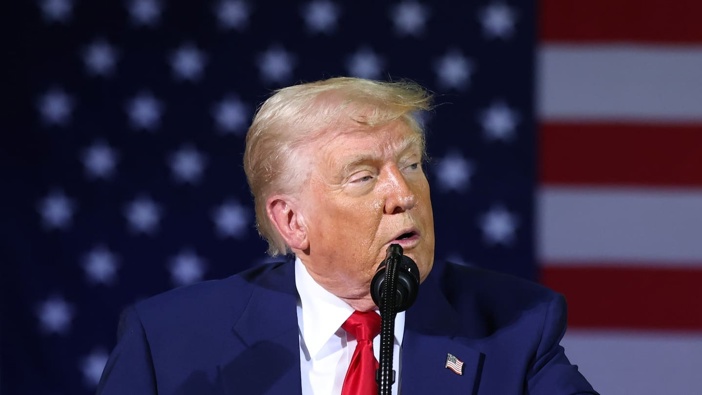Follow
the podcast on


This week, a new disaster movie was announced. There isn’t a script yet, because no one knows how it’s going to end - and when it was announced, no one knew how to react. If there was ever a global WTF moment in film, it was Trump’s announcement of a 100 percent tariff on films coming into the US which have been produced in foreign lands.
As is often the case with President Trump, he asks a good question but comes up with the wrong answer. It’s totally reasonable to look at how California can rebuild its entertainment industry. According to the International Alliance of Theatrical Stage Employees, around 18,000 full time jobs have been lost over the last three years, mostly in California. So, yes, sure, look at how to maintain production and jobs in the US - but in a way which will actually benefit the entertainment business.
No one sees the tariff on films made overseas as the answer to their problems. Many US studios make films overseas. The industry was advocating for tax incentives and subsidies and all the other normal things countries, including New Zealand, have done to help their film industries.
But throwing out a declaration on social media without further explanation isn’t the way to convince an industry you have their best interests at heart. Share prices for Netflix, Disney, Warner Bros. Discovery, Paramount and Comcast fell after President Trump’s announcement.
And what does this proposal even mean? Is Trump talking about independent, foreign language films? Or large-scale studio films made overseas? And what if you produce the film from the States - say you write the script, pre-produced and post produce the film in the US, but take advantage of another country’s tax incentives to shoot there? Is that a film made in a foreign land? What about a US produced film that uses Weta FX in NZ to create award winning visual effects - will it have to foot the tariff bill? What does this mean for streaming services? It's thought about 75 percent of Netflix content is made outside the US. Will TV shows be included?
It’s a minefield and it has thrown Hollywood into chaos. Films do not get made in a hurry, they are scheduled and planned years in advance. This is close to a writer’s strike - in that Hollywood is being forced to take a breath and pause non-committed work, and it will take some time to get things started again.
It’s not just Hollywood who has been thrown, film industries around the world are in collective shock. In the UK, where new instalments of Marvel’s Avengers and Spider-Man are set to shoot in London, the news was met with disbelief. Succession star Brian Cox called it “an absolute disaster”, and with a related workforce of around 200,000, many freelancers could find themselves jobless.
New Zealand could suffer the same fate. Our industry has been bolstered recently by international productions, such as Chief of War, Minecraft and Brad Pitt’s Heart of the Beast. We have an incredible industry here driven by a world-class crew who rely on these international projects. At the beginning of the year, Studio West in Auckland completed construction of its fifth sound stage, and Auckland Film Studios is also adding new stages - all so they can accommodate bigger international projects. The industry will be holding its breath that it can find a way to fill this new capacity. New Zealand's film sector generates NZ$3.5 billion annually, with around one third of revenue generated from the United States. So, yeah, what Brian Cox said - this could be a disaster.
But we're grown ups - so keep calm and carry on seems to be the public response so far, but behind the scenes there is no doubt at least mild panic. Finding a way to convince Trump there are other approaches to Make Hollywood Great Again will be at the forefront of industry leaders' minds right now - let’s hope they do. Otherwise, this story might have a miserable ending...
LISTEN ABOVE
Take your Radio, Podcasts and Music with you









